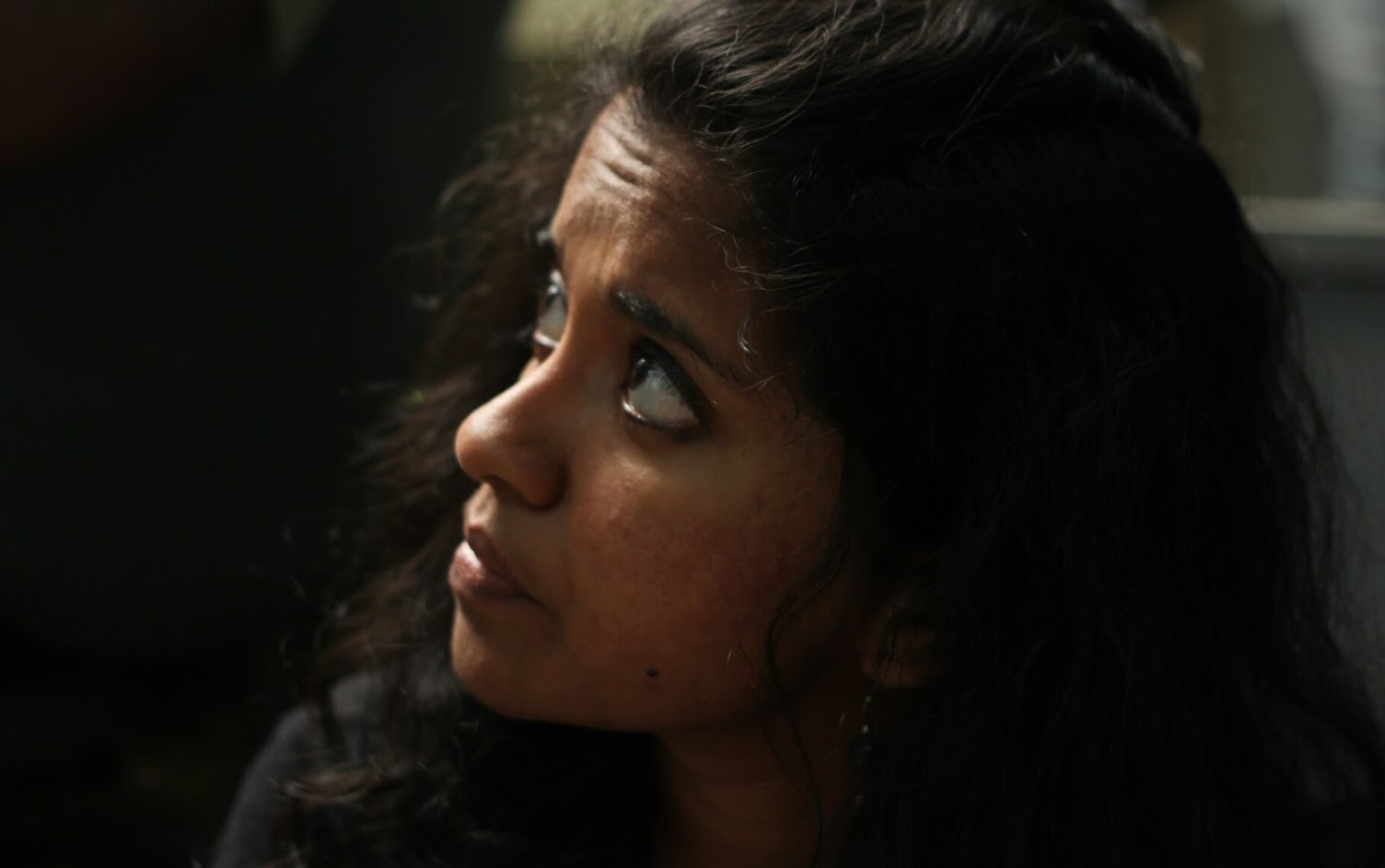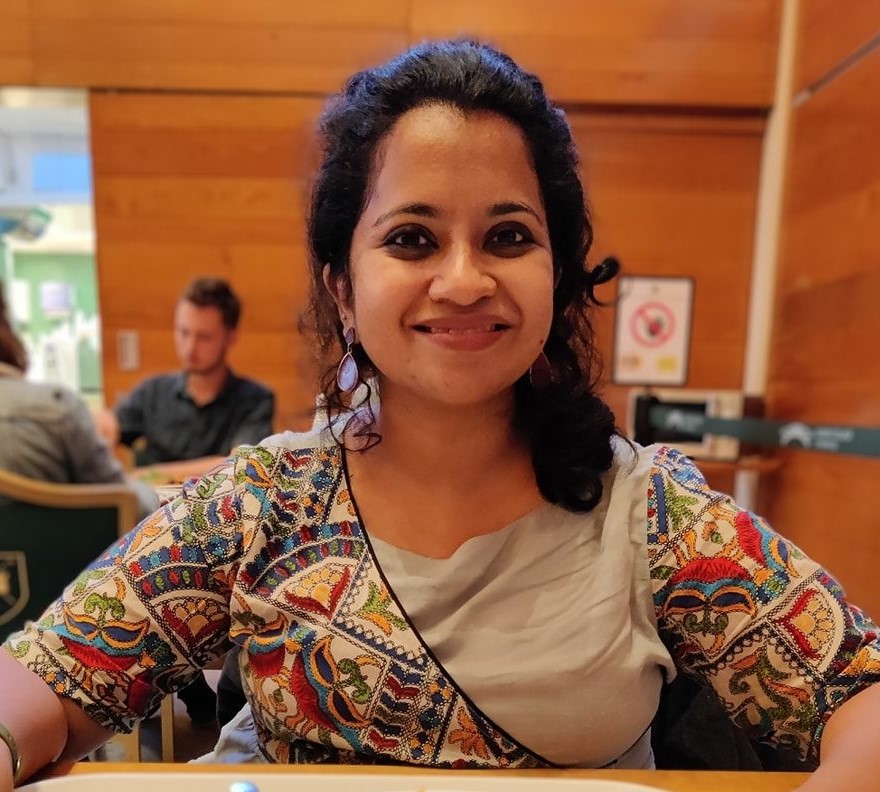
Reetika Subramanian's PhD will investigate the gendered impact of droughts and forced migration in western India.
My fundamental interest in pursuing my research project stems from my yearning to reconcile collaborative storytelling with pressing marginalised realities.
Reetika Subramanian
Reetika Subramanian’s research into the impact of climate change on gender relations will see her embedded among a group of female labourers who are forced to leave their village annually as a result of the increasing number of severe droughts in western India.
The subject brings together Reetika’s interest in story-telling, an interest linked to her background as a journalist, and her own personal story and experience of the impact of gender inequality on her family.
For her PhD, which she begins in the autumn, she will study climate migration and gender equality in multiple sites in Marathwada, a historically drought-prone region in western India. The region has suffered six successive droughts in the last six years which have led to large-scale migration among small and marginal farmers, driven by debt.
The near-total crop failure aggravated by the mounting ecological decline has pushed farmers into a spiral of debt. While 4,699 have committed suicide in the past four years, over two million find themselves in insecure seasonal labour migration. The crisis of survival has led to high school dropout rates, a rise in early marriages and unsafe migration of the adolescent daughters of farmers.
Reetika’s research will involve field work with Dalit and Adivasi girl labourers from the villages of Beed district from which locals are forced to migrate annually. It will also include looking at the songs sung by women when they are grinding grain for flour. These have been digitised by the People’s Archive of Rural India, a web news portal. Reetika believes using them as academic literature gives her access to “cultural idioms which provide clues beyond scholarly conceptualisation”. She says: “The songs reflect the women’s lived experience. My aim is to understand the gendered impact of droughts.”
Domestic violence
Her interest in gender inequality is driven by her own family experience. Born into a middle class family in Mumbai, she and her two older sisters grew up against a background of domestic violence. Reetika says it would have been very difficult for her mother both financially and socially to walk out on the marriage when she was bringing up her children. “Gender norms are so embedded with regard to marriage in India. The experience of seeing my mother treated like that left me feeling very angry and that anger continues to be a dominating force,” says Reetika [2019]. “As a result gender became my way of seeing the world.”
Reetika says her school teachers and friends were aware of what was happening at home and that that understanding was critical to her emotional stability, as were her violin lessons which provided an important non-academic outlet. Although she was very rebellious as a teenager, fuelled by rage at what was happening at home, Reetika was also studious and keen to get good grades. She was elected head girl of her secondary school.
A refuge in writing
She had always been interested in writing, describing it as “a space I have taken refuge in”. She was also keen to assert her independence so at 16 she got her first journalistic assignment. At 18 she started her first trainee journalist job at the Free Press Journal while she was doing an undergraduate degree in journalism, studying in the morning and working in the afternoon and evening. During her course she joined the Hindustan Times, India’s second largest English daily newspaper. Reetika covered different beats from education, crime and citizen activism to elections and said working as a journalist alongside her studies proved a good combination for her. She came top of her class in her final year at college.
She then worked solidly for the Hindustan Times, but, after a while, found the daily news beat gruelling and felt she was only scraping the surface of what was going on in the city. So she joined the Partners for Urban Knowledge, Action & Research [PUKAR] collective and worked with youth from marginalised communities and neighbourhoods, training them as researchers. “They would undertake research in their own community,” she says. “I set up a blog for the organisation so they could document their own stories of change. Knowledge is usually so top down and we wanted to challenge that so that they could disseminate their own everyday realities.”
Reetika worked for PUKAR through most of her two-year master’s in media and cultural studies at the Tata Institute of Social Sciences. At the end of her course she spent a semester at Sciences Po in Paris through a Charpak scholarship from the French embassy in India, studying urban policy governance and practice. She also took time out to travel and says the experience was culturally enriching and taught her that she could survive on her own outside India and gave her a more international perspective.
Identities in conflict
She returned to India to do her master’s thesis on an urban ghetto in northern Mumbai, exploring how young Muslim women there were able to move between very patriarchal spaces at home and a women’s group at the local library which was much more liberal. “My interest concerned identities in conflict,” says Reetika. The project was awarded best research project in her class and it proved a turning point for her. “I didn’t see myself as a classical researcher, but I enjoyed the participatory, story-telling aspect of this project. It drew on my interest in journalism. It also linked to my experience in my own family, particularly around domestic violence, and steered my path towards researching issues around gender norms,” she says.
Those issues include early marriage and bridal trafficking in Rajasthan, sexual violence in Mumbai and female circumcision among Dawoodi Bohras, a sect within the Ismā'īlī branch of Shia Islam.
Reetika applied for an MPhil in Multidisciplinary Gender Studies at Cambridge in order to contextualise her field experience within a broader academic framework and won a Chevening-Cambridge Trust Scholarship. She chose the course because of its multidisciplinary approach to gender and arrived in Cambridge in 2016. Narendra Modi was in power in India. Trump was about to be elected President of the US. Global politics was fuelling urgent discussions within gender studies.
Reetika’s thesis, which was awarded the Bell Scholar prize, was on the centuries-old practice of female genital cutting. She was keen to trace progress since she had first written an article on the practice for the Hindustan Times in 2011 and had become involved in an Indian feminist movement opposing it. Reetika is working with one of the movement’s leaders on a young adult book on the practice.
After her MPhil finished Reetika returned to India to work with the Centre for Migration and Labour Solutions, where she has been undertaking field research and documenting in-depth news stories on gender, labour and distress migration.
During her MPhil, Reetika was a delegate to the Global Scholars Symposium, a conference of international scholars in the UK which was started up by Gates Cambridge Scholars. She will begin her PhD in the autumn. It allows her to use her journalistic skills and to explore her interest in co-creating knowledge in more depth. She says: “My fundamental interest in pursuing my research project stems from my yearning to reconcile collaborative storytelling with pressing marginalised realities.”

Reetika Subramanian
- Alumni
- India
- 2019 PhD Multi-disciplinary Gender Studies
- Queens' College
Early marriage and bridal trafficking in Rajasthan, sexual violence in Mumbai, female circumcision among Dawoodi Bohras: my experiences as a journalist and researcher have exposed me to diverse geographies, socio-economic realities and cultural prejudices that young women across India face. Home, however, is the place where I first found my bearings. As a survivor of domestic violence, my feminism got defined by my mother's everyday negotiations within the structures that cultivate and normalise the culture of silence. It drove me to challenge patriarchal notions of leadership and become sensitive to differences. Gender became a way of seeing the world. Backed by my rich field insights, multimedia skills and a feminist consciousness, I am excited to return to Cambridge to pursue my PhD as a Gates Cambridge scholar. My study straddles the areas of climate justice and gender equality. In India's historically drought-prone and caste-ridden Marathwada region, I seek to combine a multi-sited feminist ethnography with an informed interpretation of oral folk poetry, to understand the historical compulsions, lived experiences and gendered labour burdens of Dalit and Adivasi girls in a climate crisis. My fundamental interest in pursuing the project stems from my yearning to reconcile collaborative storytelling with pressing marginalised realities.
Previous Education
University of Cambridge Multi-disciplinary Gender Stud 2017
Tata Institute of Social Sciences Media and Cultural Studies 2015












